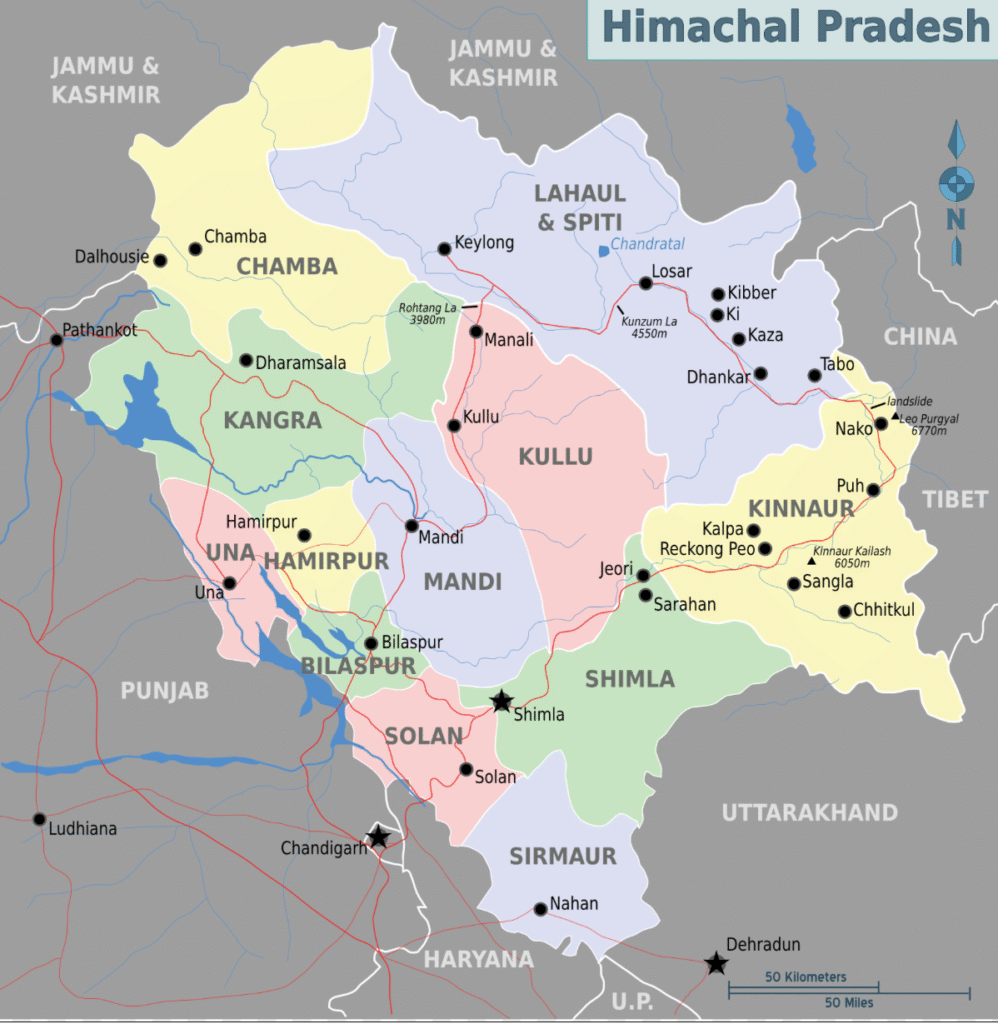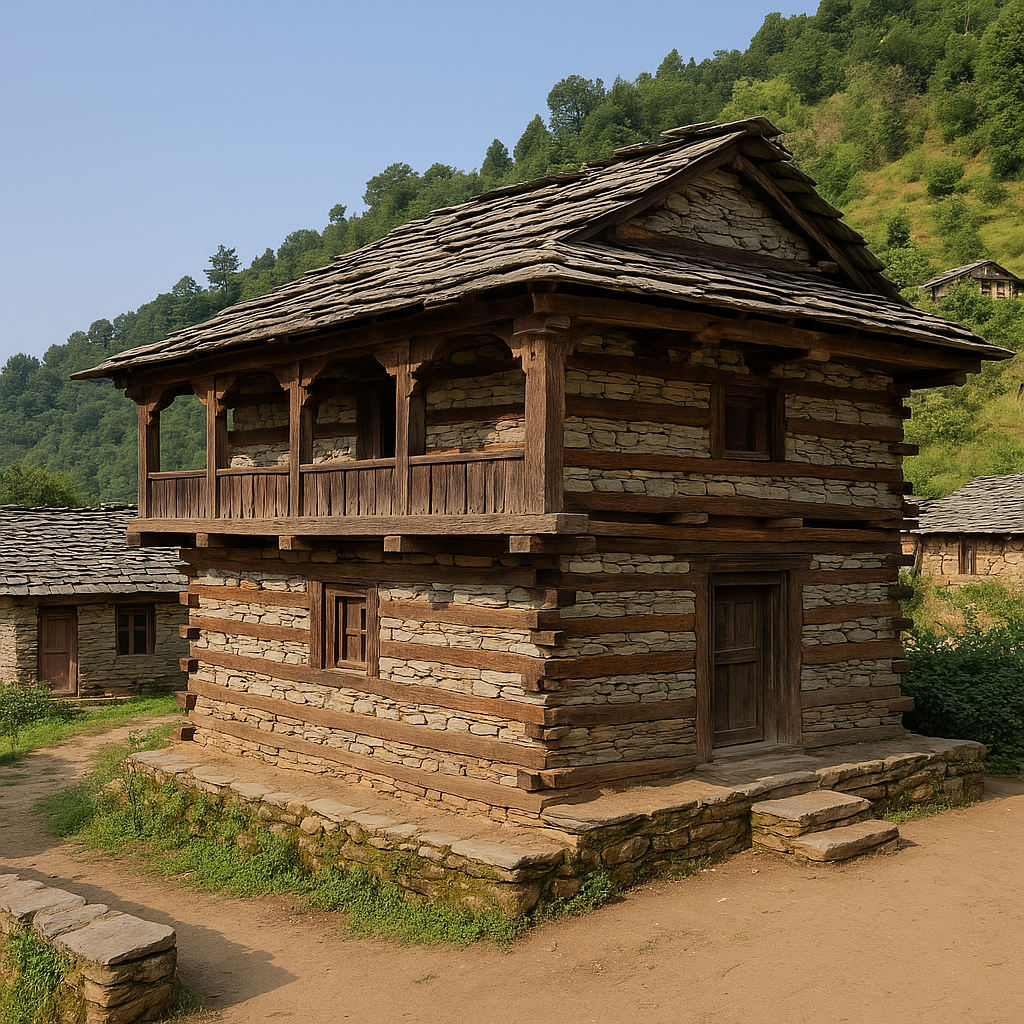Introduction :
Temple architecture in Himachal Pradesh is primarily classified based on roof styles, reflecting regional climate, terrain, and cultural influences. These styles showcase a unique blend of indigenous traditions and external elements, adapted to the Himalayan environment.
1. 🏯 Shikhar Style
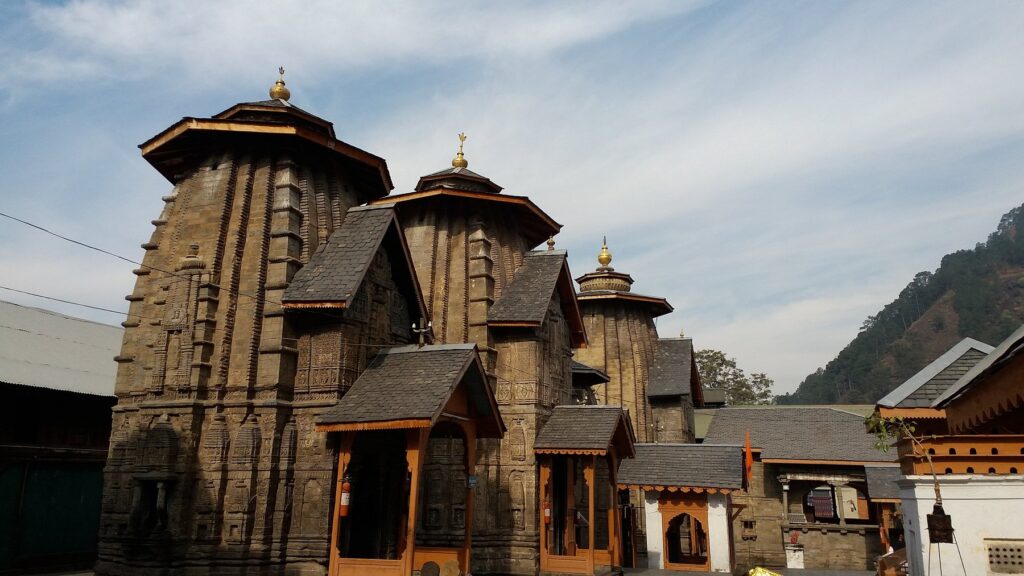
Features :
- Inspired by the Nagara style of North Indian temple architecture.
- The temple has a conical/tower-like stone spire (Shikhar) rising above the sanctum (garbhagriha).
- The Amalaka, a notched circular stone disc (symbol of the sun), is placed on top of the shikhar.
- Temple layout includes:
- Mandap (pillared hall or porch)
- Garbhagriha (sanctum sanctorum)
- Shikhar (spire or tower)
- Richly carved exteriors with religious motifs.
Examples:
- Baijnath Temple, (Kangra)
- Lakshmi Narayan Temple Group, Chamba
2. 🏠 Pent Roof Style
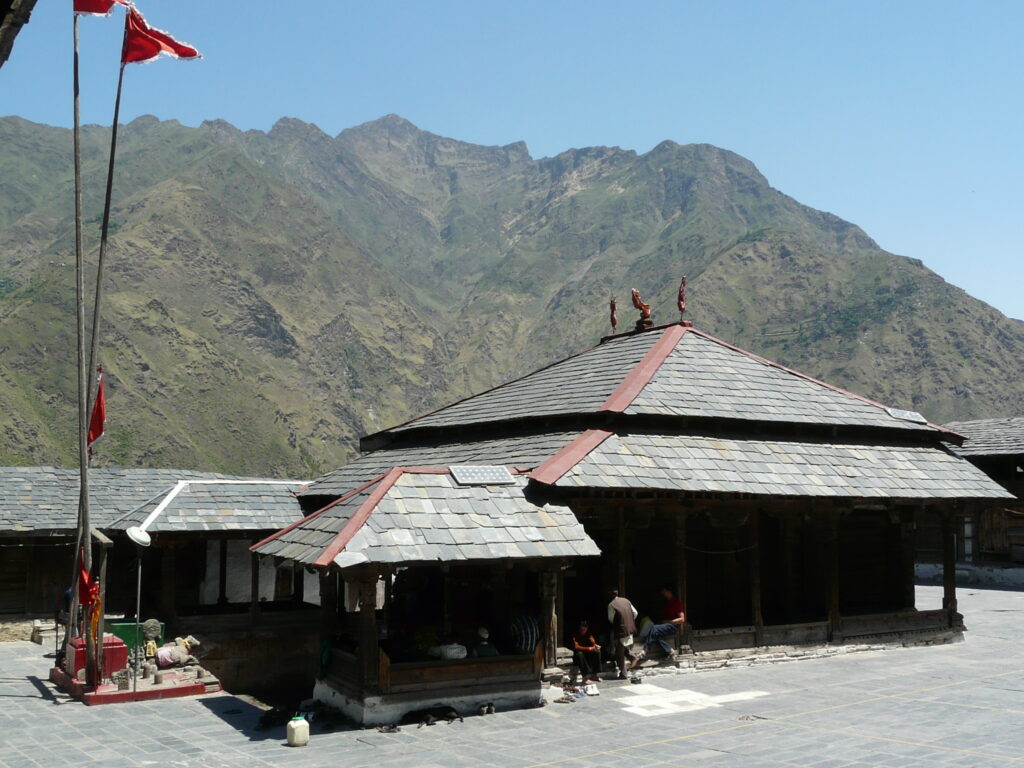
Features :
- Locally evolved to suit heavy rainfall and snowfall.
- Roof made of overlapping rows of slate with steep slopes to prevent accumulation of snow.
- Structures are usually rectangular or circular, built with wood and stone.
- A projecting sloped roof creates a covered veranda around the temple.
- This veranda is used for pradakshina (circumambulation), serving both functional and ritualistic purposes.
- Walls often made of timber or stone, sometimes with intricate woodwork.
Examples:
- Bijli Mahadev, Kullu
- Lakshana Devi Temple, Bharmour (Chamba)
- Shakti Devi Temple, Chatrari (Chamba)
3. 🏯 Pagoda Style
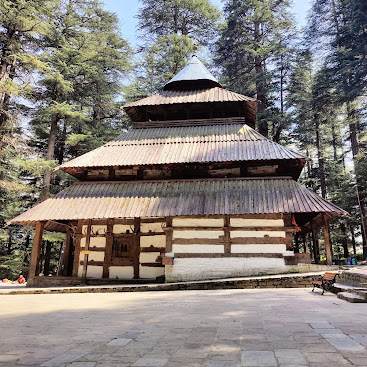
Features :
- Influenced by Buddhist stupas and East Asian (Nepalese-Tibetan) architecture.
- Structure made primarily of wood and stone, rectangular base.
- Multiple tiered roofs (eaves) stacked one above the other, each slightly smaller than the one below.
- Roofs supported by intricate wooden brackets and carved beams.
- Often gives the appearance of a multi-storeyed tower.
- Suitable for seismic zones, offering flexibility and strength.
Examples:
- Prashar Temple (Mandi)
- Hadimba Devi Temple (Manali, Kullu)
- Tripura Sundari Temple (Nagar, Kullu)
- Adi Brahma Temple (Khokhan, Kullu)
- Manu Temple (Shanshar, Kullu)
- Maheshwar Temple (Sungra, Kinnaur)
- Chagoann Temple (Kinnaur)
4. 🏛️ Dome Style
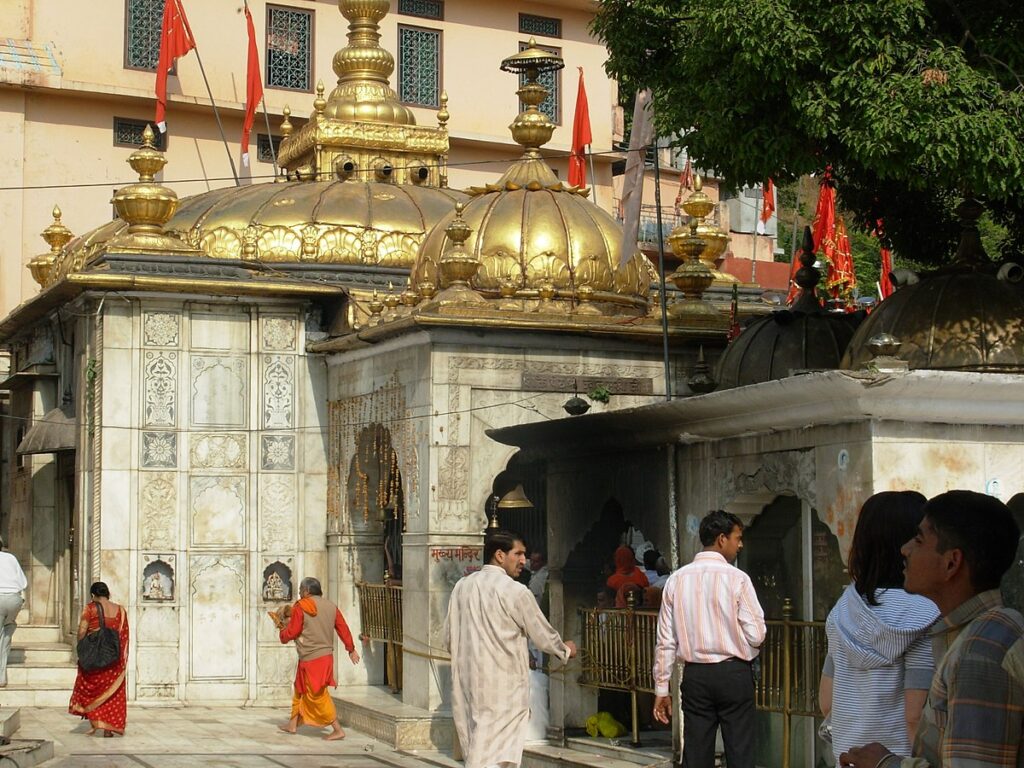
Features :
- Result of Islamic (Mughal) and Sikh architectural influence during medieval period.
- Temples topped with domes, either hemispherical, elongated, or flattened.
- Domes rest on a drum and are often flanked by smaller domes or chhatris.
- Usually lack traditional Hindu elements like shikhar.
- Often associated with Shakti Peeths or later period temples.
- Built with lime plaster and stone, and sometimes painted or decorated externally.
Examples:
- Jwalamukhi Temple (Kangra)
- Bajreshwari Temple (Kangra)
- Chintpurni Temple (Una)
- Naina Devi Temple (Bilaspur)
5. ▭ Flat Roofed Style
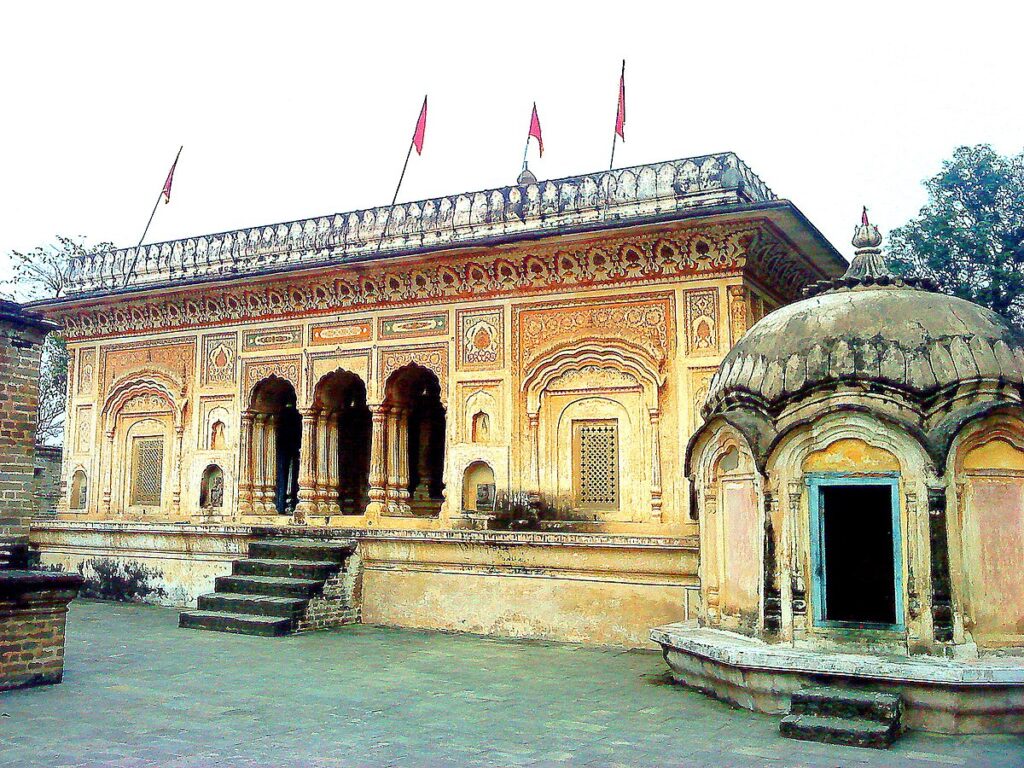
Features :
- Found mostly in arid or semi-arid parts of Himachal with less snow/rainfall.
- Temples constructed using mud bricks or stone, with lime plastered walls.
- Flat or low-pitched roofs with slope up to 10°, often made from wooden beams and mud.
- Temples are single-storeyed and less ornamented.
- Noted for traditional Pahari mural paintings on walls and ceilings.
- The flat roof may be used for resting or ceremonial activities.
Examples:
- Narbadeshwar Temple, Sujanpur Tira (Hamirpur)
- Ramgopal Temple, Damtal (Kangra)
6. 🏞️ Sutlej Valley Style
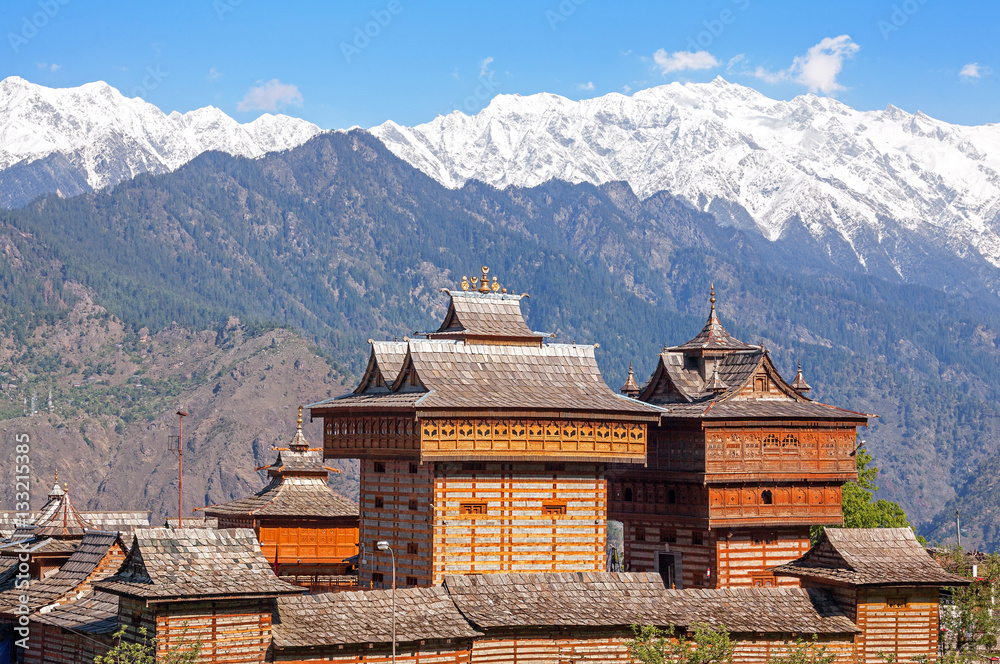
Features :
- A fusion of Pent Roof and Pagoda architectural elements.
- The core shrine (garbhagriha) has one or more pagoda-style roofs, often resembling a shikhar.
- Roofs are often steep and tiered, made of timber and slate.
- The mandap (hall) is typically long, and the sanctum might be placed at one end or center.
- Reflects the blending of regional traditions with local materials and climate adaptations.
Examples:
- Bhimakali Temple, Sarahan (Shimla)
- Behna Mahadev, Kullu
- Dhaneshwari Devi, Nethar (Outer Seraj)
7. 🔺 Pyramidal Style
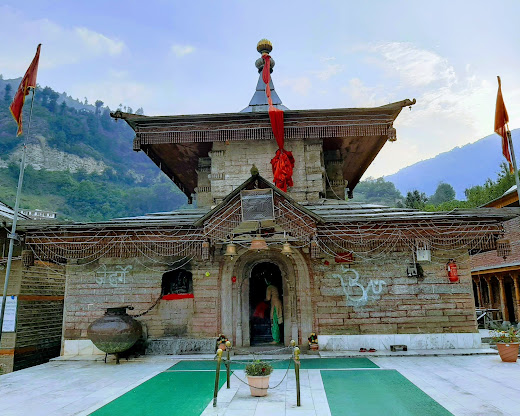
Features :
- Temples are built on square base/plinth.
- Roof has equal-length eaves on all four sides, narrowing upward in steps to form a pyramid-like apex.
- Constructed using stone masonry with wooden elements.
- Strong symmetry, compact layout, and no excessive ornamentation.
- Primarily found in the Jubbal valley and nearby regions.
- Offers durability and resistance to snowfall due to steep angle.
Examples:
- Hateshwari Devi Temple, Hatkoti (Shimla)
- Shiva Temple, Mahasu (Shimla)
- Shiva Temple, Deora (Jubbal, Shimla)
Conclusion :
The diversity of temple styles in Himachal highlights the region’s architectural adaptability and cultural depth. These structures are vital to understanding vernacular architecture and regional expressions of Indian temple design

